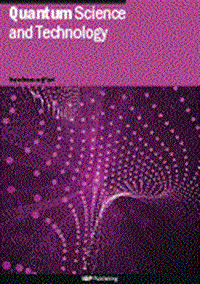联合量子神经网络:协作量子学习的新范式
IF 5
2区 物理与天体物理
Q1 PHYSICS, MULTIDISCIPLINARY
引用次数: 1
摘要
近年来,为了缓解数据所有者对隐私的担忧,科学家们积极推动了联邦机器学习的概念。目前,机器学习和量子计算技术的结合是一个热门的行业话题,并被定位为一个主要的颠覆者。它已成为重塑从医疗保健到金融等多个行业的有效新工具。数据共享对许多行业的大规模机器学习构成了重大障碍。研究由异构联合资源组成的先进量子计算生态系统是一个自然的目标。在这项工作中,通过开发一种量子联邦学习方法来处理数据治理和隐私问题,该方法可以在嘈杂的中等规模量子时代的量子硬件上有效地执行。我们提出了一种联邦混合量子经典算法,称为量子神经网络,它在不同的地点进行分布式训练,而不交换数据。混合算法需要小的量子电路来产生有意义的特征,用于图像分类任务,这使其成为近期量子计算的理想选择。这项工作的主要目标是评估混合量子-经典和经典-量子卷积神经网络在几个医疗机构/客户之间的非独立和非相同分区(Non-IID)和现实世界数据分区数据集上的潜在优势。我们研究了协同量化神经网络在两个医疗机器学习数据集(COVID-19和MedNIST)上的性能。大量的实验验证了所提出的量子联邦学习框架的鲁棒性和可行性。我们的研究结果表明,与联邦随机梯度下降方法相比,必要的通信回合减少了2%-39%。混合联邦框架保持了较高的分类测试准确性和泛化性,即使在医疗数据在客户端之间分布不均匀的情况下也是如此。本文章由计算机程序翻译,如有差异,请以英文原文为准。
Federated quanvolutional neural network: a new paradigm for collaborative quantum learning
Abstract In recent years, the concept of federated machine learning has been actively driven by scientists to ease the privacy concerns of data owners. Currently, the combination of machine learning and quantum computing technologies is a hot industry topic and is positioned to be a major disruptor. It has become an effective new tool for reshaping several industries ranging from healthcare to finance. Data sharing poses a significant hurdle for large-scale machine learning in numerous industries. It is a natural goal to study the advanced quantum computing ecosystem, which will be comprised of heterogeneous federated resources. In this work, the problem of data governance and privacy is handled by developing a quantum federated learning approach, that can be efficiently executed on quantum hardware in the noisy intermediate-scale quantum era. We present the federated hybrid quantum–classical algorithm called a quanvolutional neural network with distributed training on different sites without exchanging data. The hybrid algorithm requires small quantum circuits to produce meaningful features for image classification tasks, which makes it ideal for near-term quantum computing. The primary goal of this work is to evaluate the potential benefits of hybrid quantum–classical and classical-quantum convolutional neural networks on non-independently and non-identically partitioned (Non-IID) and real-world data partitioned datasets among several healthcare institutions/clients. We investigated the performance of a collaborative quanvolutional neural network on two medical machine learning datasets, COVID-19 and MedNIST. Extensive experiments are carried out to validate the robustness and feasibility of the proposed quantum federated learning framework. Our findings demonstrate a decrease of 2%–39% times in necessary communication rounds compared to the federated stochastic gradient descent approach. The hybrid federated framework maintained a high classification testing accuracy and generalizability, even in scenarios where the medical data is unevenly distributed among clients.
求助全文
通过发布文献求助,成功后即可免费获取论文全文。
去求助
来源期刊

Quantum Science and Technology
Materials Science-Materials Science (miscellaneous)
CiteScore
11.20
自引率
3.00%
发文量
133
期刊介绍:
Driven by advances in technology and experimental capability, the last decade has seen the emergence of quantum technology: a new praxis for controlling the quantum world. It is now possible to engineer complex, multi-component systems that merge the once distinct fields of quantum optics and condensed matter physics.
Quantum Science and Technology is a new multidisciplinary, electronic-only journal, devoted to publishing research of the highest quality and impact covering theoretical and experimental advances in the fundamental science and application of all quantum-enabled technologies.
 求助内容:
求助内容: 应助结果提醒方式:
应助结果提醒方式:


